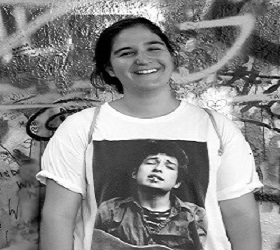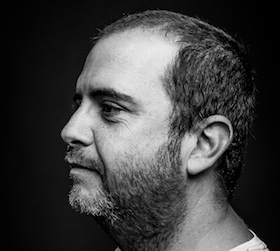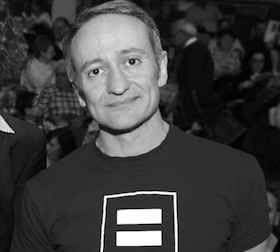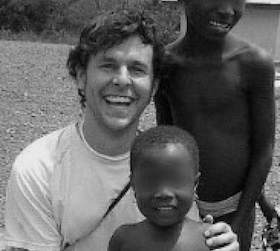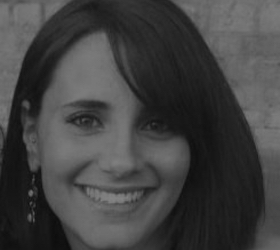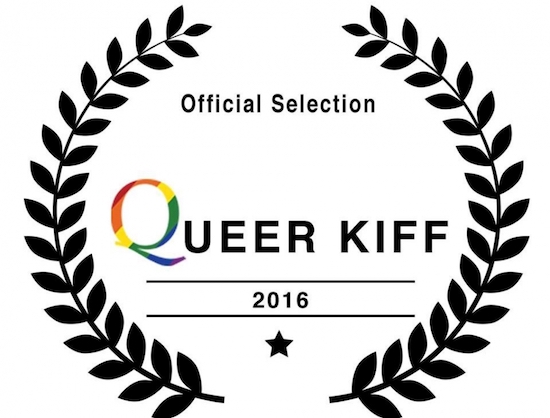
“Las lesbianas no sólo en Uganda, sino en África en su conjunto se enfrentan a una enorme invisibilidad”
9 de diciembre de 2016. Entrevista realizada por Adrián Ormeño Garcia.
En los días del 9 al 11 del pasado mes de Diciembre tuvo lugar el primer festival de cine LGBTI de Uganda. Desde AfricaLGBT hemos tenido la oportunidad de hablar sobre ello con la persona responsable de comunicación de este festival.
El QKIFF (Queer Kampala International Film Festival) “celebra la diversidad de las comunidades gay, lesbiana, bisexual, transgénero a través de cine de calidad” tal como nos dice Qwin Mbabazi. Han participado tanto directores ugandeses como directores internacionales. La misión en un futuro es poder motivar a futuros artistas a exponer sus obras en este espacio y poder fomentar el desarrollo profesional de películas de temática LGBTQ en África Oriental atrayendo al propio colectivo.
El objetivo general de este festival, según nos cuenta Qwin Mbabazi F, es sin duda poder aumentar la conciencia sobre la identidad sexual y de género a través de películas que difundan un mensaje de tolerancia, respeto y dignidad al gran público.
Pregunta: Es el primer festival internacional de cine Queer que se hace en Uganda ¿Cómo creéis que se vivirá el festival en este país?¿Esperáis repercusión? ¿Tenéis miedo?
Respuesta: QKIFF puede decir con orgullo que ha logrado el impacto esperado, es decir poder filmar películas y documentales LGBTQ en Uganda donde es ilegal ser como eres. A pesar del miedo que tuvimos de que el Festival pudiera ser parado, al igual que otros eventos organizados por miembros LGBTQ en el pasado y temer por la seguridad de los participantes, hemos conseguido celebrar con éxito el primer Festival de Cine Queer durante tres días, con más de 150 participantes tanto locales como internacionales, aunque había mayor porcentaje de locales. Los miembros de la comunidad recibieron positivamente esta nueva herramienta de sensibilización y nos han motivado a mantener un Festival de Cine que sea más grande y con mayor repercusión en los próximos años. Creemos que dentro de 3 a 4 años el Festival Internacional de Cine Queer de Kampala será capaz de celebrar este evento anual con el apoyo total no sólo de la comunidad, sino con todos los grupos a los que va dirigido, apoyándonos y participando plenamente.
P: Teniendo en cuenta la legislación del país ¿A quién va dirigido exactamente el mensaje que este festival pretende lanzar? ¿A las autoridades ugandesas o a la población en su conjunto?
R: QKIFF tiene un número de audiencias objetivo las cuales mencionamos a continuación:
A) Los políticos que tienen la potestad de hacer las leyes que ponen nuestras vidas en peligro.
B) Los miembros de las familias, ya que juega un gran papel en la estabilidad de nuestra cultura africana y es en el propio núcleo familiar donde a veces comienza la homofobia
C) De igual manera a compañeros y miembros de trabajo en los lugares donde trabajamos.
D) Líderes religiosos, ya que éstos son los fundamentalistas que difunden discursos de odio
E) Miembros de la comunidad en general como amigos, vecinos o aliados LGBTQ.
F) El personal de la policía y de la salud, y de miembros LGBTQ que tienen encuentros con ellos día a día a medida que nos brindan servicios sociales.
G) La Junta de Cine que tantas veces nos censura mensajes LGTBQ en los medios
H) La sociedad LGBTQ en conjunto para animarles a compartir sus historias, hablar más y entender mejor otras siglas del conjunto LGBTQ al que no pueden afiliarse.
P. Desde el punto de vista artístico y cultural, ¿Cual o cuales de las películas programadas que se presentan refleja mejor la lucha de los derechos LGTBQ?
R. Las películas y los documentales que se proyectaron durante el Festival Queer de Kampala Internacional reflejan y representan la vida y las luchas de los derechos de los LGBTQ. Hicimos una selección que fuese inclusiva de cerca de 35 películas y documentales, independientemente de la duración o el tema como la vida gay o las vidas Trans. Cada una de las películas que seleccionamos y proyectamos tenía contenido LGBTQ. Desde un punto de vista artístico diré que cada una de estas películas ha jugado un papel vital y han alcanzado la expectativa que teníamos de ellas
Algunos representaron las vidas de personas LGBTQ casadas que vivían dobles vidas, la cruda realidad de revelar la identidad sexual cuando es ilegal en tu país, lo pronto que algunas personas LGBTQ se encuentran a sí mismas y como enfrentan el bullying en la escuela, la influencia religiosa. En pocas palabras, todos los temas fueron cubiertos a través de las diversas películas y documentales que proyectamos.
P. Introducís este festival para poder fomentar el desarrollo personal y artístico de profesionales de cine y video queer en África. ¿Creéis que habrá éxito teniendo en cuenta la situación del colectivo en esta zona?
R. El QKIFF cree que a través del uso de este festival de cine estamos aprovechando una eficaz herramienta compatible con la sensibilización social y el talento. Creemos que tendrá éxito porque el arte visual es un poder en sí. Además, esta es una herramienta silenciosa que no se puede detener fácilmente. En el pasado muchas de nuestras convocatorias como talleres, reuniones de orgullo y campañas de concienciación han sido detenidas negándonos el poder de usar nuestras voces para difundir nuestro sufrimiento y la necesidad de igualdad. Sin embargo con el uso del Festival de Cine esto está obligado a cambiar. Cualquiera está dispuesto y tiene curiosidad para sentarse y ver una película o un documental, tanto al aire libre o en privado, motivando de esta manera el uso de esta herramienta de promoción silenciosa, el “Festival de cine”, para llegar a tanta gente como sea posible, de todas clases, LGBTQ y heterosexual
P. Una de las películas ugandesas aborda la relación de una pareja lésbica. ¿Cómo es la situación de la visibilidad de las mujeres lesbianas en Uganda? ¿Y en África? ¿Creéis que a través de películas como esta aumenta su visibilidad? ¿Pensáis que esto va a tener efectos positivos para avanzar en el respeto a los derechos de las mujeres lesbianas africanas?
R. Las lesbianas no sólo en Uganda, sino en África en su conjunto se enfrentan a una enorme invisibilidad y debido a la forma en que la sociedad reacciona ante ellas generalmente, se han visto obligadas a volver al armario o viven dobles vidas, como es el casarse o tener hijos de manera que encubran su sexualidad. Muchas veces las lesbianas han sido expuestas a la violación correctiva como una manera de reformar sus vidas o incluso forzadas a estar en matrimonios acordados por sus familias
QKIFF cree que con la proyección de más películas lésbicas esto no sólo las animará a salir y exigir sus derechos y espacio como lesbianas, sino también crear conciencia social sobre su existencia en nuestra sociedad africana con la esperanza de que serán aceptadas y reducir las atrocidades cometidas contra ellas.
P. La Perla de África, cuenta la historia de mujer transgénero además de la realidad del país en materia LGTBQ ¿Cuáles son los riesgos que viven las personas transgénero en Uganda en su día a día?
R. La gente transexual se enfrenta a una serie de riesgos ya que, aparte de la transfobia que la sociedad les impone, el gobierno ugandés ha aprobado varias leyes que ponen directamente en peligro sus vidas.
"La Ley de Registro de Personas" es ahora una ley legal en Uganda desde 2015 que no sólo prohíbe a las personas intersexuales escoger el género que prefieren a menos que tengan por lo menos 21 años, sino que también dificulta a las personas trans cambiar totalmente su género siendo ilegal como es ahora.
Además, las personas trans tienen prohibido cambiar sus nombres, por lo tanto, si usted nació "Qwin" no se puede cambiar legalmente su nombre a "Austin".
La aprobación de la Ley de ONG a principios de 2016 amenaza la existencia de organizaciones LGBTI en Uganda, ya que prohíbe el trabajo en materia de derechos LGBT, por lo que es muy difícil para las personas transgénero abrir sus propias organizaciones para defender sus derechos y crear conciencia.
P.De las películas extranjeras que se presentan ¿Cuál/es es la que más os ha conmovido?
R. Había tres películas que nos conmovieron a nosotros y al público en general:
A) Miss Major 2015 Directores: Annalise Ophelian - USA 01:30:44 Minutos, LGBT, transgénero, mujeres afroamericanas.
B) KUMU HINA 2014 Director de Dean Hamer - Estados Unidos 77 Minutos, Drama
C) Political Animal 2016 Directores: Jonah Markowitz y Tracy Wares, Estados Unidos 01:25:00 Mins, Documental.
P. ¿Qué película nos recomendaríais personalmente para dejarnos con un buen sabor de boca a la par de conocer la realidad LGTBQ?
R. Os recomendaríamos que vierais “La Perla de Uganda”, una película ugandesa sobre la trans-vida de una mujer ugandesa transgénero y “ Outed the painful Reality 2015” dirigida por Kamoga Hassan, estas películas reflejan la realidad de las personas LGBTQ alrededor del mundo y las adversidades con las que se encuentran.
P. Para terminar con la entrevista, creemos desde Fundación Triángulo y AfricaLGBT que hacéis una gran labor a la par que valiente. Nuestro máximo y caluroso apoyo. ¿Qué mensaje os gustaría lanzar a nuestros lectores en España con respecto al QueerKIFF y vuestra campaña de concienciación?
R. Agradecemos a todos aquellos que han apoyado y vieron el éxito de nuestro primer Festival Internacional de Cine Queer de Kampala, a quienes que contribuyeron individualmente, los productores y directores de cine que nos permitieron proyectar sus películas, los y las participantes locales e internacionales que lograron viajar para este evento, la cobertura mediática que aprovechó el espacio para difundir y concienciar, a quienes ofrecieron apoyo monetario y moral, así como a todo el comité organizador de QKIFF por llevar a cabo un evento exitoso.
Nuestro mensaje es que QKIFF sea un evento anual y pedir por favor que continúen apoyándonos.
Facebook: Festival Internacional de Cine de Queer Kampala
Correo electrónico: Esta dirección de correo electrónico está siendo protegida contra los robots de spam. Necesita tener JavaScript habilitado para poder verlo.
Entrevista realizada y traducida al castellano por nuestro voluntario Adrian Ormeño García para ÁfricaLGBT. Puedes ver las respuestas en su idioma original a continuación.
Interview for Fundación Triangulo and AfricaLGBT.org project:
Name: Qwin Mbabazi F (Media/Communication Officer QKIFF)
Short description of your position in QueerKiff:
Queer Kampala International Film Festival is the first queer film festival to be held in Uganda. QKIFF celebrates the diversity of Gay, Lesbian, Transgender and two-spirited communities through quality cinema.
This inaugural year, the festival span for 3 days from 9-11 December drawing crowds from across the world, with film premieres, artist talks and panel discussions that will focus on queer film Production from Uganda and around the world.
Our mission is to encourage the professional development of East African queer films and support Artists by providing space to show case their works and Talent.
During the festival there will be workshop for local filmmakers, panel discussions with film makers and produce LGBTI films and distributors of LGBT-related works, and how to generate LGBT content that will appeal to LGBTI community in East Africa.
OBJECTIVE: It is a well- known fact that Uganda is one of the worst places for queer people and our primary goal is to increase awareness and tolerance of sexual identity issues through increased public exposure using films. We would like to spread correct information on sexual identity to the public and promote the dignity for all.
1. It is the first international festival of Queer films made in Uganda. How do you believe the festival will be lived in the country? Do you expect an impact? Are you afraid?
QKIFF can proudly say we achieved our expected impact which was being able to screen LGBTQ movies and documentaries in Uganda where it is illegal to be who we are. Much as we were scared that the Festival may be stopped just as the other events organized by LGBTQ members were stopped in the past and feared for the safety of the participants but we managed to hold a 3 day successful 1st ever Film Festival with a turn up of over 150 participants both local and International however the biggest percentage was locally. Members of the community positively received this new tool of Advocacy and were in support motivating us to have a bigger and better Film Festival in the coming years. We believe that 3-4 years from now Kampala Queer International Film Festival will be able to hold this annual event with full support of not only the community at large but with all our target groups fully supporting and participating.
2. Taking into account the legislation of the country. To whom exactly is the message that this festival intends to launch directed? To the Ugandan authorities or to the population as a whole?
QKIFF has a number of target audiences as mentioned below;
- The policy makers that have the rights to make the laws that put our lives in danger.
- Family members since family plays a great role in the stability of our African culture and it is family that sometimes starts the homophobia
- Work colleagues and members in the places we work at.
- Religious leaders as these are the fundamentalists in spreading hate speech
- General community members such as friends, neighbours LGBTQ Ally
- Police and health staff and LGBTQ members encounter these on a day to day basis as they avail social services to us.
- The Film Board as many times they censor LGBTQ media messages
- LGBTQ society at large to encourage them to share their stories, speak out more and understand better other Acronyms in the LGBTQ circle to which they may not affiliate.
3. From an artistic and cultural point of view, which of the scheduled films reflects the struggle LGTBQ rights better?
The movies and documentaries that were screened during the Kampala Queer International Queer Film Festival all reflected and depicted the lives and struggles of LGBTQ rights. We screened close to 35 movies and documentaries inclusive and irrespective of duration or theme such as gay lives or Tran-lives each of the films we selected and screened had LGBTQ content. From an artistic view I will say that each of these films played a vital role and reached the expectation we had.
Some depicted lives of married LGBTQ people who lived double lives, the harsh reality of outing LGBTQ people when it is illegal in their country, how early some LGBTQ people discover themselves and the bullying they face in school, coming out for the first time, the religion impact. In a nutshell all was covered through the various films and documentaries we screened.
4. You are introducing this festival to promote the personal and artistic development of queer film and video professionals in Africa. Do you think this will succeed, taking into account the situation of the group in this area?
QKIFF believes that through the use of this film festival we are tapping into a very resourceful and compatible tool of Advocacy and talent as well. We believe it will be successful because Visual Art is a power of its own. In addition this is a voiceless tool that can-not easily be stopped. In the past many of our convening’s such as workshops, pride gatherings and awareness campaigns have been stopped denying us the power to use our voices to air out our pains and need for equality however with use of Film Festival this is all bound to change. Any and every individual is willing and curious to sit around and watch a movie or documentary weather in open space or the privacy of their home thus promoting and instilling the use of this voiceless advocacy tool “Film Festival” to reach as many people as possible from all walks of life, LGBTQ and Heterosexual.
5. One of the Ugandan film shows the relationship of a lesbian couple. How is the situation of the visibility of lesbian women in Uganda? And in Africa? Do you think that their visibility increases through movies like this? Do you think that this will have positive effects to advance respect for the rights of African lesbian women?
Lesbians not only in Uganda but in Africa as a whole face a lot of invisibility and because of the way society usually reacts to lesbians that come out many have been forced back into the closet or live double lives, that is they get married or give birth to kids as a cover-up of their sexuality. Many times lesbians have been exposed to corrective rape as a way of straightening their paths or even forced into arranged marriages by their families.
KQIFF believes that with more Lesbian films screened this will not only encourage them to come out and demand for their rights and space as Lesbians but also create societal awareness about the existence of Lesbians in our African Society with the hope that they will be accepted and the atrocities committed against them reduced.
6. “The Pearl of Africa” tells the story of a transgender woman and the reality of the country concerning the LGBTQ scenario. What are the risks that transgender people face in Uganda in their daily lives?
Transgender people face quiet a number of risks since aside from the Trans-phobia that society inflicts onto them the Ugandan government has passed quiet a number of laws that directly put their lives more at risk.
“Registration of Persons Act” is a now a legal law in Uganda since 2015 and it not only prohibits intersex people from choosing the gender they prefer unless they are at least 21 years old but also hinders transgender people from changing their gender totally as that is illegal now.
In addition, Transgender persons are prohibited from changing their names therefore if you were born “Qwin” you can-not legally change your name to “Austin.”
The passage of the NGO Act in early 2016 threatens the existence of LGBTI organizations in Uganda as it will prohibit LGBT rights work thus it is quite difficult for Transgender persons to open up their own organizations to advocate for their rights and create awareness.
7. From the foreign films that are presented, which is the one that moved you the most?
There were 3 foreign movies that moved us and the audience at large and these are;
- Miss Major 2015 Directors: Annalise Ophelian - USA 01:30:44 Mins, LGBT, transgender, African American women.
- KUMU HINA 2014 Director by Dean Hamer - United States 77 Mins, Drama
- Political Animal 2016 Directors: Jonah Markowitz & Tracy Wares, USA 01:25:00 Mins, Documentary.
8. What movie do you personally recommend us, in order to let us know about the LGBTQ reality and leave us with a good impression?
We would recommend you watch “The Pearl of Africa” a Ugandan movie about the Trans-life of a Ugandan Trans-woman and Outed-The Painful Reality 2015 Director by Kamoga Hassan, these movies reflect the realities of LGBTQ people across the world and the struggles they encounter.
9. To finish the interview, we believe from Fundación Triangulo and AfricaLGBT that you are doing a great job, as well as courageous. We provide you our maximum and warm support. What message would you like to transmit to our readers in Spain with respect to QueerKIFF and your awareness campaign?
Thank you very much.
We are thankful to all those that supported and fore saw the success of our 1st ever Queer Kampala International Film Festival, those that contributed individually, the Film producers and Directors that availed to us their movies for screening, the participants both local and the international that managed to travel for this event, the media coverage that availed space to spread our awareness, those that availed monetary and moral support as well as the entire QKIFF organizing committee for pulling off a successful event.
Our message is that QKIFF will be an annual event and please continue supporting us. For updates kindly follow us on
Facebook: Queer Kampala International Film Festival
Email: Esta dirección de correo electrónico está siendo protegida contra los robots de spam. Necesita tener JavaScript habilitado para poder verlo. / Esta dirección de correo electrónico está siendo protegida contra los robots de spam. Necesita tener JavaScript habilitado para poder verlo.














